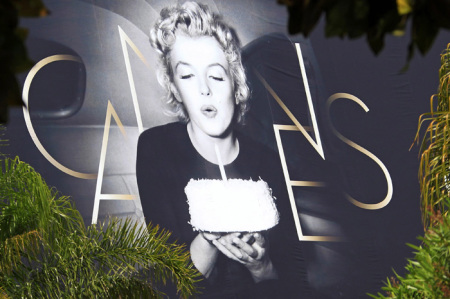Planned Parenthood calls Netflix's Marilyn Monroe film 'anti-abortion propaganda'

Planned Parenthood is criticizing Netflix's new Marilyn Monroe movie for its depiction of abortion, expressing concern about the film's portrayal of the starlet's mental torment after undergoing two illegal abortions against her will.
The movie "Blonde," based on the book of the same name by Joyce Carol Oates, premiered at the Venice Film Festival earlier this month before Netflix began streaming the film on Sept. 28.
The project stars actress Ana de Armas as Monroe and provides a fictionalized take on the former Hollywood star's life and career.
Monroe undergoes two illegal abortions in the movie, requesting that a studio secretary help her with the first abortion due to fears that her mother's mental health issues will pass onto the child. The actress later changes her mind, but the doctors ignore her and continue with the abortion.
The second time the film shows Monroe having an abortion, it's implied that she's carrying President John F. Kennedy's baby. She's forced to have an abortion in the middle of the night, telling herself that it's just a dream before waking up covered in blood.
Another pregnancy depicted in the film results in a miscarriage. But before the baby dies, it speaks to Monroe, asking if she will "do the same" as she did before. The pregnancy ends after the actress trips over a rock at the beach.
Caren Spruch, Planned Parenthood Federation of America's national director of arts and entertainment engagement, told The Hollywood Reporter Friday that she thinks the movie inaccurately depicts women's abortion experiences and increases the stigma surrounding the practice.
"While abortion is safe, essential healthcare, anti-abortion zealots have long contributed to abortion stigma by using medically inaccurate descriptions of fetuses and pregnancy," she said. "Andrew Dominik's new film, Blonde, bolsters their message with a [computer generated imagery]-talking fetus, depicted to look like a fully formed baby."
Spruch noted that the film's creators have a right to an artistic license. Still, she believes that media must portray abortion in a sensitive light, criticizing "Blonde" again for its supposed lack of accuracy.
"We still have much work to do to ensure that everyone who has an abortion can see themselves onscreen," she added. "It is a shame that the creators of Blonde chose to contribute to anti-abortion propaganda and stigmatize people's healthcare decisions instead."
In a Sept. 27 statement to The Wrap, "Blonde" writer and director Andrew Dominik disagreed that the film is "anti-pro choice," contending that the movie is somewhat nuanced in its approach to the complex issue. Dominik believes that many critics are looking at the film "through this Roe v. Wade" lens, tying the controversy to the timing of its release.
The movie's release comes three months after the U.S. Supreme Court's June 24 ruling in Dobbs v. Jackson Women's Health Organization overturned the Roe v. Wade decision that legalized abortion nationwide. The Dobbs decision determined that the U.S. Constitution does not contain a right to abortion.
Referring to the film's critics upset about its depiction of abortion, Dominik contended that "They've got a certain agenda where they feel like the freedoms of women are being compromised, and they look at 'Blonde,' and they see a demon, but it's not really about that."
"I think it's very difficult for people to step outside of the stories they carry inside themselves and see things of their own volition. And I think that's really what the movie is about: the dangers of that," Dominik said.
"But, I mean, no one would have given a s*** about that if I'd made the movie in 2008, and probably no one's going to care about it in four years' time," he added. "And the movie won't have changed. It's just [what's] sort of going on."
"Blonde" is not the only form of media to speculate that Monroe had an abortion.
As The Daily Mail reported in April 2020, a biography by author Fred Lawrence Guiles titled Norma Jean: The Life of Marilyn Monroe suggested that the starlet may have aborted President Kennedy's or his brother Robert Kennedy's baby weeks before her death.
The author cites possible evidence that may indicate Monroe had at least one abortion, including the fact that she appeared to have been in a deep depression around the time it might have happened. According to a publicist who worked for the starlet's press agent, Monroe was secretly admitted to a Los Angeles hospital in 1962 for an abortion.
However, Guiles noted that it is still difficult to determine whether Monroe became pregnant by one of the Kennedy brothers, stressing that the actress was seeing other men at the time.
Samantha Kamman is a reporter for The Christian Post. She can be reached at: samantha.kamman@christianpost.com.





















